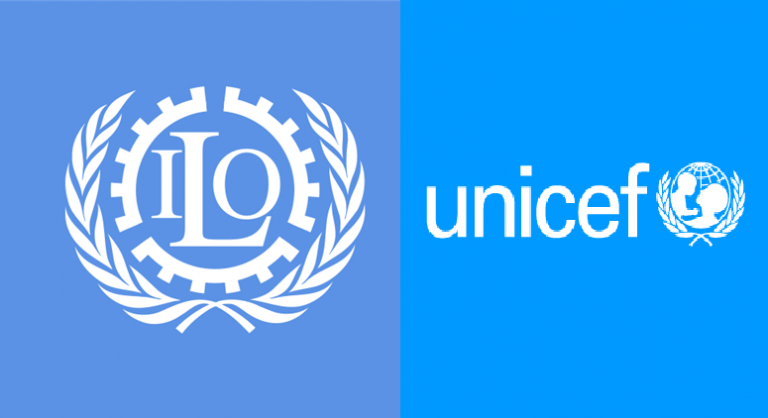By Akanimo Sampson
Businesses now have new guidelines to help them support working families during this raging coronavirus crisis.
Two United Nations agencies- the International Labour Organisation (ILO) and the United Nations Children’s Fund (UNICEF)- issued the guidelines.
The preliminary guidance urges employers to consider the impact of business decisions on workers’ families and to support greater social protection wherever possible.
They say that extra support, particularly for those on low incomes, is essential to minimise the negative consequences of the outbreak for workers, employers, their families and children.
Finding safe childcare, juggling work and care responsibilities at home, and coping with a loss of income, are among the challenges facing families.
Women are also disproportionately affected by the pandemic. They make up the majority of health and care workers and are more likely to lack social protection.
Before the COVID-19 outbreak women were already performing more than three-quarters of unpaid care work globally and that is likely to have increased.
ILO and UNICEF are also calling on governments to support employers and strengthen social protection, especially for vulnerable families.
Family-friendly policies and practices, including employment and income protection, flexible working arrangements, paid leave to care for family members and access to quality, emergency childcare can make a critical difference and help stabilize labour markets, families and societies.
Director of the ILO’s Conditions of Work and Equality Department, Manuela Tomei, says “social dialogue – consultation and collaboration among governments, workers and employers and their representatives – is essential. If responses are to be effective and sustainable, they have to be built on trust and a wide range of experiences.”
International labour standards provide a strong foundation for the policy responses needed for sustained and equitable recovery.
They encapsulate the idea of a human-centred approach to economics and development, and balance the requirements of stimulating demand, supporting businesses and protecting workers.
UNICEF Chief of Early Childhood Development, Dr. Pia Rebello Britto, says “the secondary impacts of the pandemic – job losses, prolonged stress and a deterioration of mental health – will be felt by families for years to come. For the most vulnerable children, the absence of adequate social protection systems exacerbates their exposure to the crisis.”
The preliminary guidelines for employers include: Monitor and follow national advice from local and national authorities and communicate it to the workforce, and review existing workplace policies to ensure they provide sufficient support to workers and their families.
Others include, following good practices when implementing policies based on social dialogue, national labour laws and international labour standards, ensuring that workplace support measures are available to all, without discrimination, and that all workers know, understand, and are comfortable with them as well as combating discrimination and social stigma at work by supporting training, and confidential and safe reporting mechanisms.
Adopt family-friendly working arrangements to give workers greater freedom and flexibility to carry out their work. If flexible working is not possible, consider other forms of support for working parents, such as childcare.
Support working parents with appropriate childcare options and ensure that childcare jobs are quality jobs.
Strengthen occupational safety and health measures, including with guidance and training on occupational safety and health and hygiene.
Encourage workers to seek appropriate medical care and support employees coping with stress.
Support government social protection measures in line with the ILO Social Security (Minimum Standards) Convention, 1952 (No. 102) and ILO Social Protection Floors Recommendation No. 202. This can include subsidies for workers to access health, unemployment and inability to work insurance, maternity protection, and should extend to workers in the informal economy.
|
Formed in 1919, ILO is the only tripartite UN agency, bringing together representatives of governments, employers and workers from 187 member states to set labour standards, develop policies and devise programmes promoting decent work for all women and men.
On the other hand, UNICEF works in some of the world’s toughest places, to reach the world’s most disadvantaged children. Across more than 190 countries and territories, we work for every child, everywhere, to build a better

